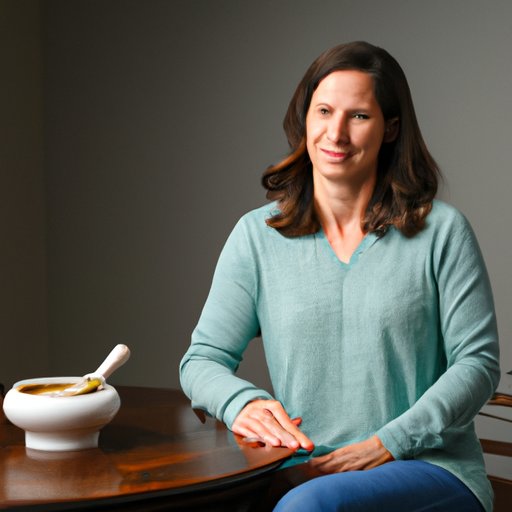
I. Introduction
Let’s be honest, talking about poop isn’t the most comfortable topic for many people. However, getting to know your bowel movements and what they reveal about your health is essential for overall wellness. Your poop can give you important clues about the health of your digestive system and your body as a whole.
Don’t let the embarrassment of discussing bowel movements keep you from understanding the importance of it. Knowing what to look for can help you catch potential health issues early, which can lead to quicker treatment and prevention of some health problems down the road.
II. The Ultimate Guide to Understanding Your Bowel Movements and What They Reveal About Your Health
Your bowel movements consist of waste products from the food you eat. The waste products combine with fluids, gut bacteria, and other components to form stool. The colon, also known as the large intestine, is where your body expels the stool to the rectum before being excreted through the anus.
Proper monitoring of your bowel movements is crucial for maintaining your health. This involves paying attention to the texture, color, frequency, and stool size to ensure that everything is functioning correctly.
III. Decode the Messages Hidden in Your Poop: A Beginner’s Guide to Healthy Bowel Movements
Healthy bowel movements come in various forms depending on the individual, but some general characteristics are indicative of good digestive health. Healthy poop is typically soft and formed into a shape similar to a sausage. The color can range from medium brown to light yellow-brown, while the frequency can vary from 1-3 times per day or every 2-3 days.
Abnormal bowel movements can indicate a wide spectrum of digestive issues. It can range from infrequent bowel movements to loose stools to severe bloating and cramping. If you are experiencing any such symptoms, it’s essential to seek medical advice to identify the underlying issue.
Fortunately, several practical tips can help you achieve healthy bowel movements, such as drinking enough water, eating plenty of fiber-rich foods, and avoiding processed snacks and alcohol. Your poop will also benefit from regular physical activity and reducing stress. Consistency in healthy habits can help you improve your bowel movement health.
IV. Why Your Poop Matters: The Link Between Your Gut and Overall Health
Your digestive system processes the food you eat and provides your body with essential nutrients to maintain optimal health. A healthy gut is critical for overall wellness. However, unhealthy bowel movements can lead to various health problems, constipation and diarrhea being frequently occurring ones.
They can also have long-term impacts such as increasing the risk for colon cancer and inflammatory bowel diseases. Therefore, it’s crucial to take the necessary steps for maintaining the balance of gut bacteria in the digestive system.
To keep your gut healthy, prioritize consuming a varied and well-balanced diet rich in fresh fruits and vegetables as well as fermented foods that contain active cultures. Additionally, it’s recommended to stay away from processed foods, sugar, and caffeine as much as possible.
V. The Color, Shape, and Consistency of Your Poop: What They Reveal About Your Wellness
Investing some time observing your bowel movements can help you to identify patterns that can lead to a healthy digestive system. When you regularly analyze your poop, you can gain insight into different health indicators. Consistency, color, size, and shape can help you determine if you’re experiencing any health problems.
Color: Stool color can vary from light brown to dark brown, depending on your diet. Your digestive system may move food too quickly or too slowly, which can change the stools’ color. Black colored stool is a serious symptom that requires immediate medical attention as it indicates internal bleeding.
Shape: A healthy stool is typically formed into a snake-like shape, similar to a sausage. Stools that are too loose or too hard, or even pencil-thin are potential red flags regarding the digestive health.
Consistency: Consistency also has an important role to play in the overall health of your poop. Textures that are too hard or too watery can be indicative of digestive issues. Stool consistency can range from solid, mushy, and in some cases, entirely liquid.
VI. The Surprising Health Benefits of Analyzing Your Poop and Acting Accordingly
Monitoring and analyzing your bowel movements regularly can help you identify any health problems that may arise. Early recognition of these issues can lead to prevention of long-term diseases. Maintaining a healthy digestive system helps boost your immune system and can also help to regulate your hormones.
A healthy gut can also improve your mood and reduce anxiety, as your gut is responsible for producing mood-regulating hormones like serotonin. Several studies have also indicated that a healthy gut can help prevent depression.
In summary, monitoring bowel movements might not be the most exciting activity, but it’s crucial for overall health and wellbeing.
VII. The Connection Between Your Daily Bowel Movements and Your Long-Term Health: What Doctors Want You to Know
Various medical professionals insist on the importance of regular bowel movements in maintaining optimal health. Many doctors recommend specific diets, and some may even require medical interventions such as colonoscopies to identify underlying digestive issues. Regular bowel movements are essential in preventing chronic digestive problems and overall wellbeing.
Some strategies to improve bowel movement health include increasing water intake, including more fibers in your diet, and regular exercise. A healthy gut can also benefit from supplements such as probiotics if prescribed by your physician.
VIII. Conclusion
Bowel movements are a daily health check-up, and understanding the signals they send about your health is key to preventing health issues. A healthy gut is essential for your overall well-being, which can be achieved through a balanced diet, hydration, regular exercise, and monitoring bowel movements. Stay healthy and nourished by taking good care of your digestive system, and your body will thank you in the long run.




